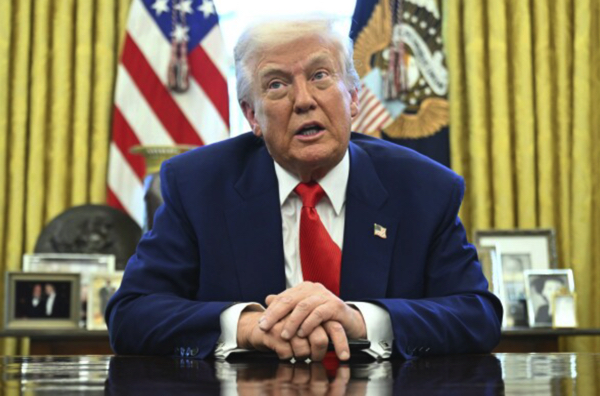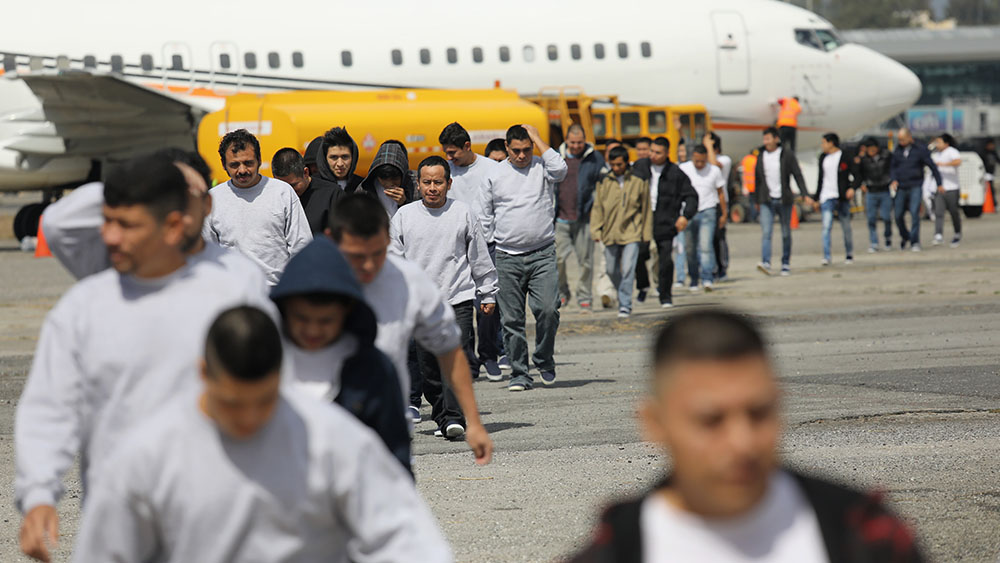Canada, China, and European nations are warning tourists about traveling to the US
Several countries have issued or updated travel advisories for visiting the US. Canada warned its citizens to "expect scrutiny at ports of entry."
Matej Hudovernik/Shutterstock/Getty Images
- China advised tourists to "fully assess the risks of traveling to the US and travel with caution."
- Canada updated its US travel advisories on April 4.
- Several European countries cited stricter US immigration and gender rules.
Canada has further tightened its advisory on travel to the US.
The country is one of several that have updated their guidance since President Donald Trump began his second term as president.
Advisories range from stricter immigration enforcement and changes to transgender rights after reports of foreign travelers being detained by immigration authorities.
Here's how Canada, China, and European countries have updated their travel guidance.
Canada: 'Expect scrutiny'
Canada warned travelers on April 4 to "expect scrutiny at ports of entry, including of electronic devices."
It said Canadians should "comply and be forthcoming in all interactions with border authorities."
This comes after more reports of travelers being turned away at the US border. France's higher education minister told Agence France-Presse that a scientist had been denied entry to the US after he was found to have sent texts criticizing Trump.
The update also said travelers should "be prepared to show evidence of your legal presence in the US" at any time.
Canada's previous update told citizens staying in the US for more than 30 days to register with the US government, following reports of a Canadian detained by ICE for two weeks.
A Department of Homeland Security rule, effective April 11, makes registration mandatory. "Failure to comply with the registration requirement could result in penalties, fines, and misdemeanor prosecution," the advisory said.
China: worsening trade relations
China's culture and tourism ministry issued a travel warning on April 9, citing worsening Sino-US economic and trade relations and the US domestic security situation. It advised Chinese tourists to "fully assess the risks of traveling to the United States and travel with caution."
A trade war has escalated between the two countries since Trump imposed 34% tariffs on imports from China as part of his sweeping tariff program. Beijing retaliated with its own tariffs on US imports of 84%.
Germany and the UK: risk of detention
Germany's advisory warns that a US visa or entry waiver doesn't guarantee admission. "Criminal records, false information, or even slight visa overstays can lead to arrest, detention, and deportation," it says, following reports of three Germans held and interrogated for weeks.
The UK's Foreign Ministry issued a similar warning after a British traveler was denied entry at the US-Canada border and held in a US ICE processing center for 19 days. The advisory says the US strictly enforces entry rules. "Failure to comply may result in arrest or detention."
Europe highlights gender rules and entry risks
Denmark, Finland, France, Ireland, the Netherlands, Norway, Portugal, and Belgium have all issued warnings about new US policies affecting transgender travelers.
In January, President Donald Trump signed an executive order recognizing only two sexes — male and female — prompting countries to update their travel advisories.
Denmark's March 20 update advised those with an "X" gender marker in their passports to contact the US Embassy before travel.
Finland's advisory, updated on March 25, advises applicants to put their gender at birth. "If the applicant's recorded gender differs from their birth sex, US authorities may deny entry."
It also cautions that overstaying or misrepresenting a stay's purpose could lead to arrest or deportation.
France's March 24 update urges travelers to ensure their visas reflect their sex assigned at birth and to check with the US Embassy and airlines for policy changes.
Ireland's advisory, also updated on March 24, notes that those with an "X" marker or a passport gender differing from sex at birth should contact the US Embassy in Dublin.
The Netherlands' foreign ministry, meanwhile, advises that US visa applications only accept "M" or "F" as gender markers.
Norway's March 24 update says that holding a visa doesn't guarantee entry, as immigration officers have final discretion. It also states that the US "only recognizes an applicant's gender at birth."
Belgium's March 26 update says LGBTQ+ legislation "varies widely" in the US and urges applicants to check new gender registration rules.
Portugal's advisory, updated on March 25, advises that travelers who identify as nonbinary complete forms using their gender at birth.
Travel impact
More people are losing interest in traveling to the US, seemingly due to the Trump administration's policies and tariffs.
Statistics Canada data released last month shows the number of Canadians driving to the US fell 23% in February compared with the same month last year.
Meanwhile, travel data firm OAG said airline bookings between Canada and the US are down 70% compared with last year. Air Canada and WestJet said they hadn't seen such stark declines but are paring capacity.
Hotel bookings for Europeans visiting the US this summer have also fallen by a quarter, Accor CEO Sébastien Bazin told Bloomberg.
Tourism Economics originally projected a 9% increase in international visitors to the US this year but last month revised that to a 5% decrease, pointing to trade tensions.
Adam Sacks, the consultancy's president, cited Trump's tariffs, "imperialistic" rhetoric, and reports of foreign travelers being detained by US immigration officials as "significant hurdles for the US travel industry."










































































